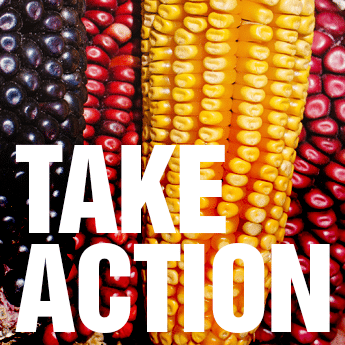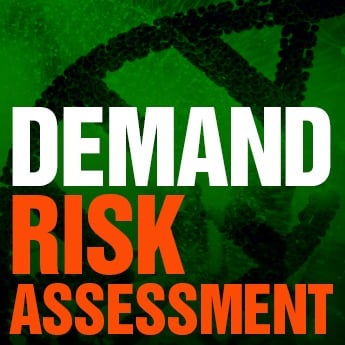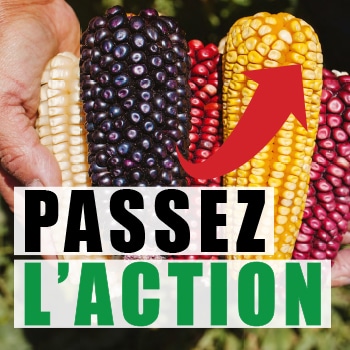July 7, 2015. Ottawa. The Canadian Biotechnology Action Network (CBAN) has denounced the federal government’s proposal to allow exceptions to Health Canada’s safety assessment of genetically modified (GM) foods.
The new policy would accept a “low level presence” (LLP) of contamination in food imports from GM products that have not yet been assessed for safety by Health Canada, if the GM food has been approved in a foreign jurisdiction that Health Canada judges trustworthy.
“This trade policy is unjustifiable from a health and safety perspective,” said Lucy Sharratt of CBAN. “Health Canada’s assessment of GM food safety should be applied to all the GM foods Canadians eat. The government should not create any exceptions to its own safety assessments of GM foods.”
The policy would remove Canada’s “zero-tolerance” for some unapproved GM foods that contaminate imports. The stated aim of the new LLP policy is to “provide a model that could be adopted globally” (1) as Canada continues to ask countries around the world to accept GM contamination from Canada as safe, even if regulators in importing countries have not yet assessed the safety of the GM product in question.
“We’re concerned that removing Health Canada’s safety assessment for some GM foods, however small the percentage, could put the health of Canadians at risk,” said Sharratt. “We need more regulation of GM foods, not less.”
CBAN submitted comments to Agriculture Canada (2) in response to a revised policy draft that is expected to be finalized later this summer. CBAN submitted comments on an earlier draft in 2013 and participated in several government consultations.
“There is no scientific basis for allowing a small amount of contamination from GM foods that Health Canada has not approved,” said Sharratt.
CBAN argues that to protect Canada’s export trade, the LLP policy proposal should be replaced by increased efforts to segregate GM and non-GM crops, and the inclusion of an assessment of potential export market harm before GM crops are approved in Canada.
-30-
For more information: Lucy Sharratt, Coordinator, Canadian Biotechnology Action Network, 613 809 1103. www.cban.ca/llp
Notes:
1) Kirsten Finstad, Agriculture and Agri-Food Canada, Addessing Low-level Presence in Food, Feed and Seed – an update, Presentation to the Canadian Seed Trade Association, Quebec City, July 16, 2013
2) CBAN’s comments and further information is posted at www.cban.ca/llp
CBAN is a campaign coalition of 17 organizations that researches, monitors and raises awareness about issues relating to genetic engineering in food and farming. CBAN members include farmer associations, environmental and social justice organizations, and regional coalitions of grassroots groups. CBAN is a project on Tides Canada’s shared platform.






